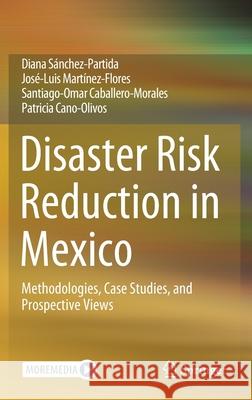Disaster Risk Reduction in Mexico: Methodologies, Case Studies, and Prospective Views » książka
topmenu
Disaster Risk Reduction in Mexico: Methodologies, Case Studies, and Prospective Views
ISBN-13: 9783030672942 / Angielski / Twarda / 2021 / 380 str.
Kategorie BISAC:
Wydawca:
Springer
Język:
Angielski
ISBN-13:
9783030672942
Rok wydania:
2021
Wydanie:
2021
Ilość stron:
380
Waga:
0.72 kg
Wymiary:
23.39 x 15.6 x 2.24
Oprawa:
Twarda
Wolumenów:
01
Dodatkowe informacje:
Wydanie ilustrowane











